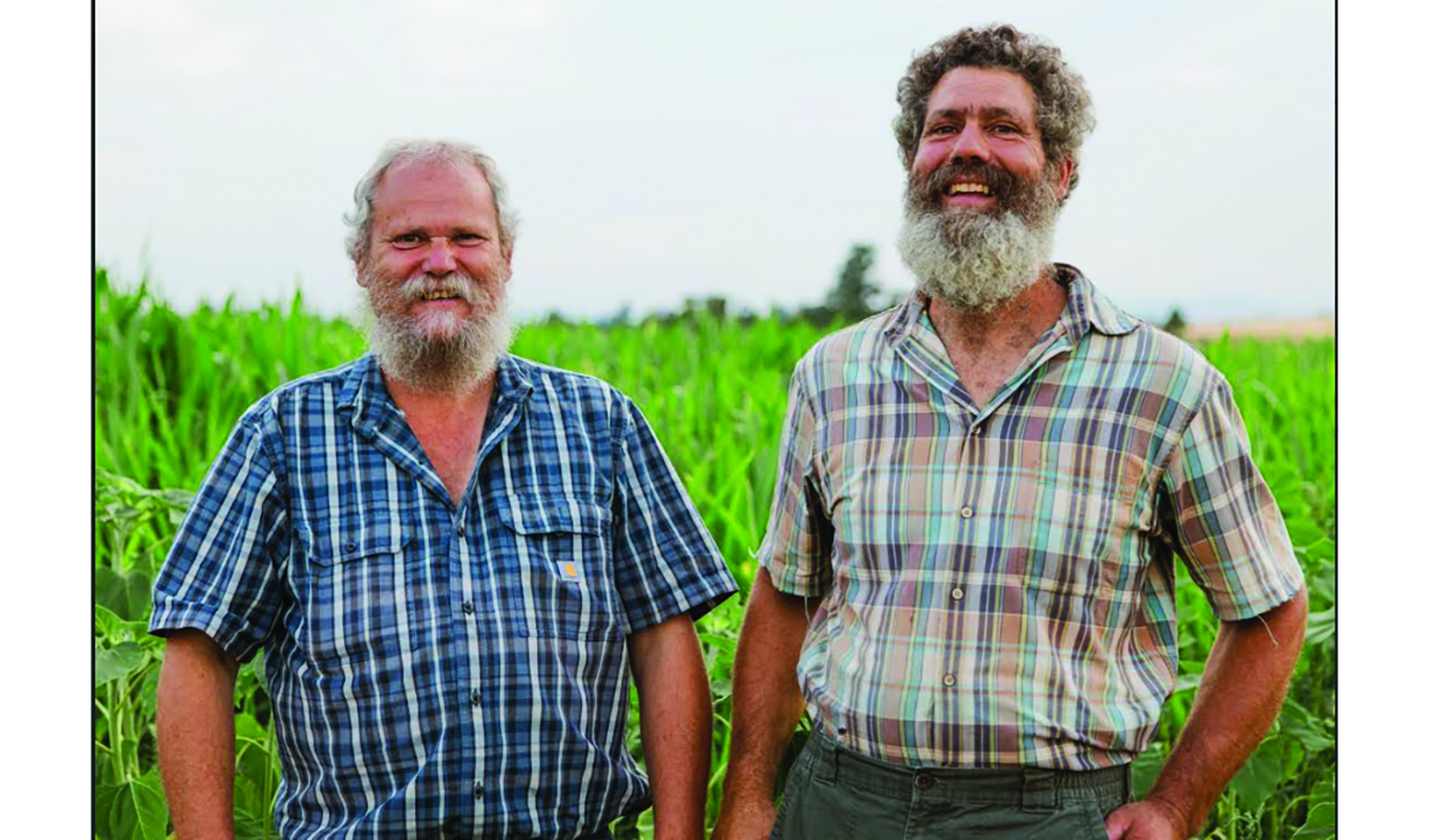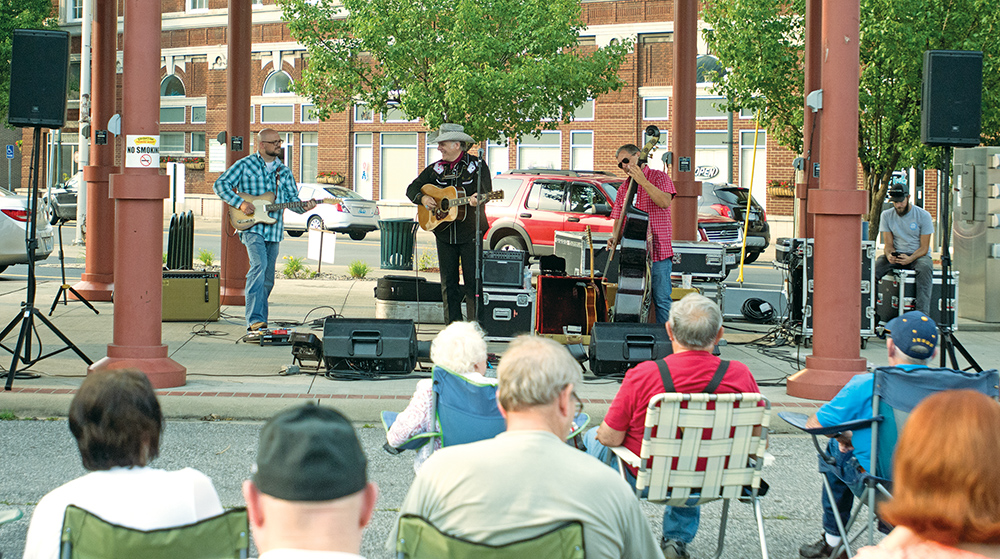Longshot Clark ‘plays big’ to win U.S. Open
Published 11:24 pm Sunday, June 18, 2023
LOS ANGELES (AP) — Wyndham Clark always carried the message from his late mother to “play big.” Nothing was bigger than Sunday when he held off Rory McIlroy with one clutch shot after another to become a U.S. Open champion.
The final act was two putts from 60 feet on the 18th hole at Los Angeles Country Club, and the 29-year-old Clark pumped his fist when it settled a foot away. He tapped that in for an even-par 70 and a one-shot victory over McIlroy and so many other stars.
Scottie Scheffler, the No. 1 player in the world, couldn’t catch him. Neither could British Open champion Cameron Smith or Rickie Fowler, who played in the final group for the third time in a major and watched an exquisite performance by Clark, playing for only the third time on the weekend in a major.
Clark let loose his emotions at the end, looking to the blue sky in tears and covering his face with his cap as he sobbed on the green. He thought about quitting golf a decade ago when he struggled with the loss of his mother, Lise, to breast cancer. She was who kept him steady in good times and bad.
This was as good as it gets for Clark, who broke through for his first PGA Tour victory only six weeks ago against an elite field at Quail Hollow.
“I just felt like my mom was watching over me today,” Clark said after hoisting the silver U.S. Open trophy. “I worked so hard and dreamed about this moment for so long. I just felt like it was my time.”
For McIlroy, it was more disappointment in his quest to end nine years without a major.
He opened with a birdie and didn’t make another the rest of the way. McIlroy played a final round that typically wins a U.S. Open — 16 pars, one bogey. Just not this one. Even as Clark showed signs of cracking during the rugged closing stretch, McIlroy missed fairways and didn’t give himself any reasonable birdie chances.
It was similar to St. Andrews last summer at the British Open, when he hit every green and couldn’t buy a putt. Instead, he’ll face more questions about when he’ll win another major.
“When I do finally win this next major, it’s going to be really, really sweet,” McIlroy said. “I would go through 100 Sundays like this to get my hands on another major championship.”
Scheffler missed too many putts early on the back nine and needed help from Clark and McIlroy that never arrived. He also closed with a 70 to finish third, a month after a runner-up finish in the PGA Championship.
Fowler set a U.S. Open record with 23 birdies, but just like so many other majors when he had a chance, he was in reverse before he ever got going — three bogeys in the opening seven holes. He never made up the ground and shot 75.
This day belonged to Clark, who showed remarkable poise and self-belief, not to mention an extraordinary short game and a fairway metal he won’t soon forget.
Already with a two-shot lead, he was a yard away from an easy birdie on the par-5 eighth when his approach hit a steep bank of the barranca to the left. Barely able to see his golf ball, Clark took a whack and the ball advanced a few inches deeper into thick grass.
He hammered it again, this time over the green, 70 feet away down a firm and scary putting surface. He chipped that to 3 feet to escape with bogey.
“That up-and-down was the key to the tournament,” he said.
More such shots followed. On the par-3 ninth, he was on the bank of a bunker and chipped away from the flag, using the slope expertly to get it to within 7 feet for another big save. And then he clipped a pitch from a tight lie left of the 11th green to 4 feet for par.
The signature shot was his fairway metal from 282 yards on the par-5 14th to 20 feet that set up a two-putt birdie, giving Clark a three-shot lead with four to play.
But he made the only bogey of the day on the par-3 15th, then found a bunker left of the 16th fairway and whacked his hand on his putter when he missed a 7-foot par putt. His lead down to one shot, he got up-and-down from left of the 17th green to keep the lead.
The USGA allowed thousands of fans to circle the fairway short of the 18th green with so few grandstands, creating a big theater for Clark’s finish.
Fowler, still chasing his first major, returned to the 18th green to hug Clark.
“I went back in there and just said, ‘Your mom was with you. She’d be very proud,’” Fowler said.
Clark finished at 10-under 270 and along with $3.6 million — his second such cash prize in the last six weeks — he moves to No. 2 in the Ryder Cup standings.
Smith shot 67 to finish fourth. Tommy Fleetwood became the first player with two rounds of 63 in the U.S. Open and finished in a tie for fifth with Fowler and Min Woo Lee (67). Fleetwood also shot 63 at Shinnecock Hills in the final round of 2018.
Sunday
At North Course
Los Angeles
Purse: $20 million
Yardage: 7,423; Par: 70
Final Round
| Wyndham Clark, United States | 64-67-69-70—270 |
| Rory McIlroy, Northern Ireland | 65-67-69-70—271 |
| Scottie Scheffler, United States | 67-68-68-70—273 |
| Cameron Smith, Australia | 69-67-71-67—274 |
| Tommy Fleetwood, England | 73-69-70-63—275 |
| Rickie Fowler, United States | 62-68-70-75—275 |
| Min Woo Lee, Australia | 69-65-74-67—275 |
| Harris English, United States | 67-66-71-72—276 |
| Tom Kim, South Korea | 73-68-66-69—276 |
| Austin Eckroat, United States | 71-68-73-65—277 |
| Dustin Johnson, United States | 64-70-71-72—277 |
| Jon Rahm, Spain | 69-73-70-65—277 |
| Xander Schauffele, United States | 62-70-73-72—277 |
| Patrick Cantlay, United States | 71-71-67-69—278 |
| Russell Henley, United States | 71-71-68-68—278 |
| Collin Morikawa, United States | 71-69-69-69—278 |
| Matt Fitzpatrick, England | 71-70-68-70—279 |
| Brooks Koepka, United States | 71-69-70-69—279 |
| Viktor Hovland, Norway | 69-70-69-72—280 |
| Bryson DeChambeau, United States | 67-72-68-74—281 |
| Nick Hardy, United States | 70-69-75-67—281 |
| Shane Lowry, Ireland | 72-70-68-71—281 |
| Denny McCarthy, United States | 71-67-73-70—281 |
| Keith Mitchell, United States | 68-71-71-71—281 |
| Ryutaro Nagano, Japan | 71-67-68-75—281 |
| Jordan L. Smith, England | 70-71-74-66—281 |
| Sergio Garcia, Spain | 70-71-71-70—282 |
| Padraig Harrington, Ireland | 73-69-67-73—282 |
| Tyrrell Hatton, England | 74-67-69-72—282 |
| Justin Suh, United States | 69-69-72-72—282 |
| Sahith Theegala, United States | 74-66-73-69—282 |
| Sam Burns, United States | 69-70-71-73—283 |
| Tony Finau, United States | 68-69-72-74—283 |
| Hideki Matsuyama, Japan | 72-69-67-75—283 |
| Joaquin Niemann, Chile | 68-72-70-73—283 |
| Patrick Rodgers, United States | 71-69-71-72—283 |
| Dylan Wu, United States | 68-70-73-72—283 |
| Cameron Young, United States | 72-70-68-73—283 |
| Eric Cole, United States | 69-70-71-74—284 |
| Si Woo Kim, South Korea | 67-72-71-74—284 |
| David Puig, Spain | 69-73-75-67—284 |
| Gordon Sargent, United States | 69-71-75-69—284 |
| Sam Bennett, United States | 67-68-79-71—285 |
| Ryan Fox, New Zealand | 68-74-69-74—285 |
| Brian Harman, United States | 65-73-72-75—285 |
| Billy Horschel, United States | 73-67-71-74—285 |
| Andrew Putnam, United States | 68-71-73-73—285 |
| Sam Stevens, United States | 75-67-70-73—285 |
| Charley Hoffman, United States | 71-67-75-73—286 |
| Mackenzie Hughes, Canada | 67-73-75-71—286 |
| Sebastian Munoz, Colombia | 68-74-72-72—286 |
| Kevin Streelman, United States | 72-69-71-74—286 |
| Gary Woodland, United States | 70-68-73-75—286 |
| Abraham Ancer, Mexico | 70-72-74-71—287 |
| Romain Langasque, France | 71-68-77-71—287 |
| Ryan Gerard, United States | 69-70-76-73—288 |
| Patrick Reed, United States | 72-69-78-69—288 |
| Yuto Katsuragawa, Japan | 69-71-75-74—289 |
| Adam Hadwin, Canada | 70-72-74-75—291 |
| Jacob Solomon, United States | 68-73-77-74—292 |
| Adam Svensson, Canada | 71-70-77-74—292 |
| Ben Carr, United States | 70-72-75-76—293 |
| Ryo Ishikawa, Japan | 69-73-78-74—294 |
| Aldrich Potgieter, South Africa | 70-72-74-79—295 |
| Maxwell Moldovan, United States | 71-71-76-79—297 |





